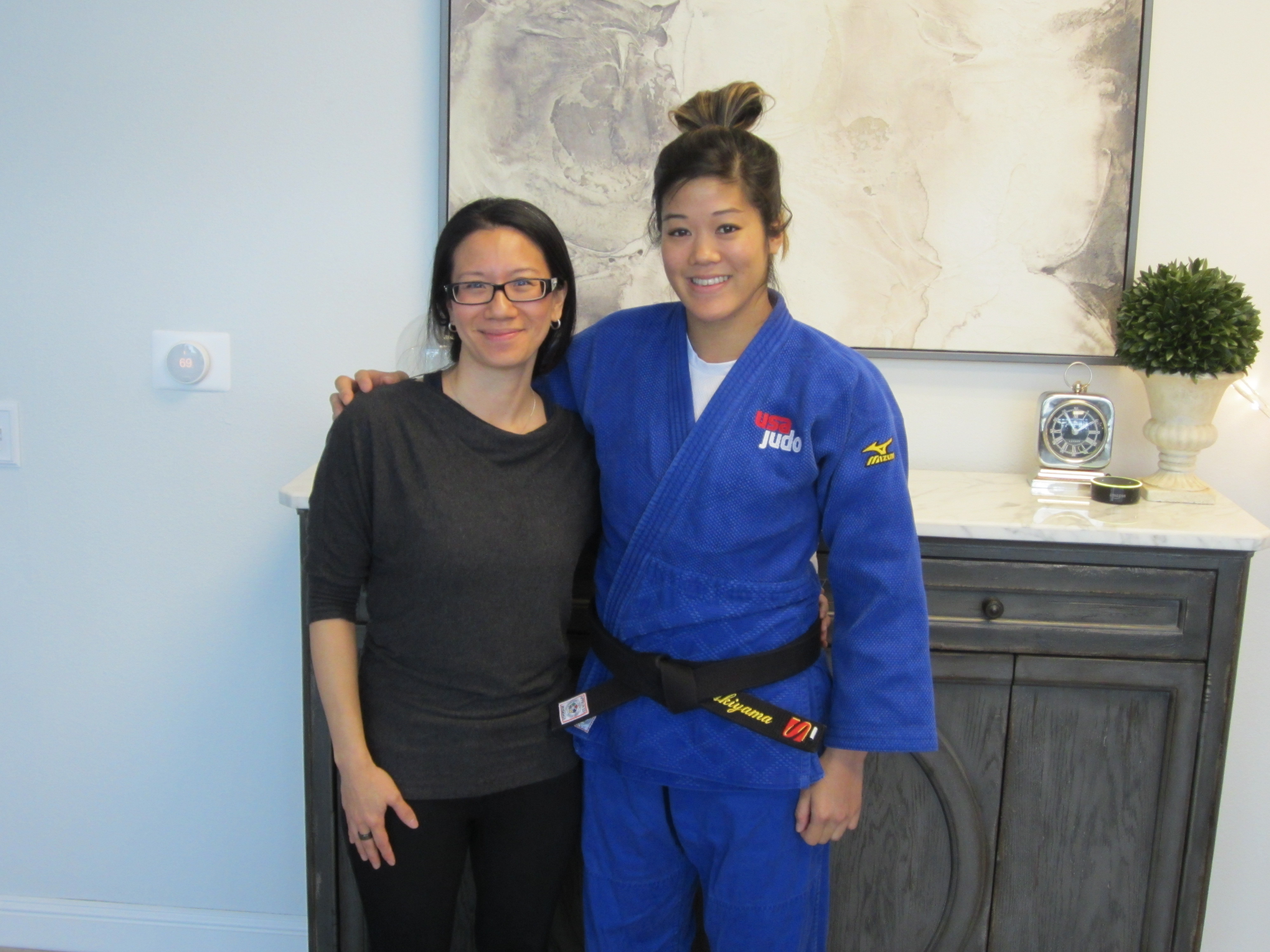Immune Health in the Time of COVID-19
The content on this newsletter is for educational purposes only and should not be used as a substitute for medical advice. Please consult with your healthcare provider ASAP if you develop symptoms.
In light of COVID19 and it’s huge societal impact, immune health has become a critical topic of interest. Immune health is based largely on inflammatory homeostasis;1 a healthy immune system is balanced, neither hyperactive nor hypoactive. A higher inflammatory load is not just associated with chronic disease. It is also associated with increased susceptibility to viral infection and poor outcome during acute illness.1,2 A balanced immune system in homeostasis is critical to staving off and optimizing recovery from acute illnesses. In this article, we take a dive into the tools that help to modulate a balanced immune state.
Balanced immune system. Altered immunity leads to a predisposition for acute illness.1 In acute lung infections, lung inflammatory responses are a double-edged sword: adequate immune response is essential to combat bacteria and virus. However, overactive inflammatory cytokines may lead to conditions that promote pathogen replication and impaired physiologic function.1
Exercise is crucial. A moderate exercise regimen may be protective against acute respiratory infections through immunopotentiation and anti-inflammatory signaling and improve recovery and survival following respiratory viral infection.6 The beneficial effects of exercise on cardiorespiratory, musculoskeletal and neurological systems are indisputable in healthy adults.3 Those who are 45-years-old with 2 or more major coronary risk factors4 should seek medical evaluation with risk assessment.
A general physical activity program should include cardiorespiratory, resistance, flexibility, and neuromotor exercise training with a goal of moderate intensity exercise 5 days a week.6,7 Seeking enjoyable physical activity is key to sustainability. Enjoyment increases an individual’s ability to stay engaged in regular physical activity.5 Recreational sport and exercise that involve social interaction may help with engagement.6 This might be an online group dance or Tai Chi class. Walking in the community with friends and neighbors using good physical distancing practices is another way to incorporate social interaction and exercise.
Daily meditation or pray. Meditation and prayer work directly and indirectly on immune health.7 Meditation can directly modulate your immune system through the downregulation of nuclear factor kappa B pathway and CRP and modulation of immune cells.8 Meditation and prayer also indirectly modulate immune health by decreasing mental or emotional stress. Stress has been shown to directly influence the immune system by causing inflammation with mast cell degranulation through signals from the sympathetic nervous system. These inflammatory stress conditions inhibit adequate immune response to infection and inhibit healing.9
There are numerous books, phone apps and websites teaching and encouraging meditation. These resources are a great introduction to meditation. Church and prayer services are now being streamed live and also provide a wonderful resource to continue habitual prayer.
Staying connected. Social support and connectedness can decrease viral load.10 This may be related to lower levels of inflammation10 or ability adherence to medication regimen and healthy lifestyle habits.11 Socialization with family, friends, and a spouse protects against risks of inflammation.12
Social involvement and interpersonal relationships are important to immune health. Interpersonal relationships within the nuclear family in the same household can be strengthened and explored during this time. Counseling services are readily available right now. Phone calls and web based video technology makes routine socialization with friends and neighbors possible and should be pursued for immune health.
Healthy foods. Good nutrition is crucial for proper immune health. Poor nutrition is synergistically related to infection risk.12 Food modulates the immune system directly through cytokines12 as well as through epigenetic mechanisms; food acts on us at the cellular level influencing gene expression.13 In addition, poor eating habits lead to obesity, heart disease, and diabetes, all risk factors in COVID19 related comorbidity and death.14 Obesity has also been linked poor outcomes in other viral illnesses with prolongation of disease.15
Although food tolerance and healthy diets vary based on individual genetics and cultural backgrounds,16 in general, a healthy diet is low in saturated fats, sugars, and refined carbohydrates.17 The most well-studied diet is the Mediterranean diet rich in fish, nuts, and legumes.18
Time-restricted feeding. Time-restricted feeding is associated with improved inflammatory state.19 Time-restricted feeding is defined as limiting the daily period of food intake to 8 hours or less. Time-restricted feeding is associated with improvement in insulin resistance, while out of phase eating is associated with a pro-inflammatory state.19 The cellular and molecular mechanisms by which time-restricted feeding improves health involves activation of adaptive cellular stress response signaling pathways that enhance mitochondrial health, DNA repair and autophagy. 20,21
A simple and effective way to start time-restricted feeding is to eat in sync with the circadian rhythm- eat when there is sunlight and stop eating when the sunsets.19 Other ways to engage in time-restricted feeding are to limit eating to breakfast and lunch and eat an early dinner or skip dinner altogether.
Adequate sleep. Adequate sleep is a pivotal component of immune health. Sleep and immunity are bidirectionally linked. Sleep promotes inflammatory homeostasis. Sleep deficiency can lead to chronic, systemic low-grade inflammation and is associated with various diseases that have an inflammatory component.22 Sleep deficiency can also lead to predisposition of acute infection.23
A third of Americans get fewer than 6 hours of sleep. Short sleep duration (generally <6 h per night) is associated with increased body mass index or obesity, diabetes, hypertension, and cognitive decline.24
Sleep hygiene is an important first step to adequate sleep. Maintaining a consistent bedtime and avoiding screen exposure at least 30 minutes prior to sleep helps to regulate the circadian rhythm.25
These may seem like common sense every day interventions. However, they are absolutely fundamental to good health and maintaining inflammatory homeostasis and a balanced and well functioning immune system.
References:
1. Aguilera ER, Lenz LL. Inflammation as a Modulator of Host Susceptibility to Pulmonary Influenza, Pneumococcal, and Co-Infections. Front Immunol. 2020;11:105. doi:10.3389/fimmu.2020.00105
2. Franceschi C, Garagnani P, Vitale G, Capri M, Salvioli S. Inflammaging and ‘Garb-aging.’ Trends in Endocrinology & Metabolism. 2017;28(3):199-212. doi:10.1016/j.tem.2016.09.005
3. Garber CE, Blissmer B, Deschenes MR, et al. Quantity and Quality of Exercise for Developing and Maintaining Cardiorespiratory, Musculoskeletal, and Neuromotor Fitness in Apparently Healthy Adults: Guidance for Prescribing Exercise. Medicine & Science in Sports & Exercise. 2011;43(7):1334-1359. doi:10.1249/MSS.0b013e318213fefb
4. Fletcher GF, Ades PA, Kligfield P, et al. Exercise Standards for Testing and Training: A Scientific Statement From the American Heart Association. Circulation. 2013;128(8):873-934. doi:10.1161/CIR.0b013e31829b5b44
5. Lewis BA, Williams DM, Frayeh A, Marcus BH. Self-efficacy versus perceived enjoyment as predictors of physical activity behaviour. Psychology & Health. 2016;31(4):456-469. doi:10.1080/08870446.2015.1111372
6. Wienke B, Jekauc D. A Qualitative Analysis of Emotional Facilitators in Exercise. Front Psychol. 2016;7. doi:10.3389/fpsyg.2016.01296
7. Black DS, Slavich GM. Mindfulness meditation and the immune system: a systematic review of randomized controlled trials: Mindfulness meditation and the immune system. Ann NY Acad Sci. 2016;1373(1):13-24. doi:10.1111/nyas.12998
8. Buric I, Farias M, Jong J, Mee C, Brazil IA. What Is the Molecular Signature of Mind–Body Interventions? A Systematic Review of Gene Expression Changes Induced by Meditation and Related Practices. Front Immunol. 2017;8:670. doi:10.3389/fimmu.2017.00670
9. Liu Y-Z, Wang Y-X, Jiang C-L. Inflammation: The Common Pathway of Stress-Related Diseases. Front Hum Neurosci. 2017;11:316. doi:10.3389/fnhum.2017.00316
10. Friedman MR, Coulter RWS, Silvestre AJ, et al. Someone to count on: social support as an effect modifier of viral load suppression in a prospective cohort study. AIDS Care. 2017;29(4):469-480. doi:10.1080/09540121.2016.1211614
11. Uchino BN, Trettevik R, Kent de Grey RG, Cronan S, Hogan J, Baucom BRW. Social support, social integration, and inflammatory cytokines: A meta-analysis. Health Psychology. 2018;37(5):462-471. doi:10.1037/hea0000594
12. Scrimshaw NS. Historical Concepts of Interactions, Synergism and Antagonism between Nutrition and Infection. The Journal of Nutrition. 2003;133(1):316S-321S. doi:10.1093/jn/133.1.316S
13. Tiffon C. The Impact of Nutrition and Environmental Epigenetics on Human Health and Disease. IJMS. 2018;19(11):3425. doi:10.3390/ijms19113425
14. Sattar N, McInnes IB, McMurray JJV. Obesity a Risk Factor for Severe COVID-19 Infection: Multiple Potential Mechanisms. Circulation. April 2020. doi:10.1161/CIRCULATIONAHA.120.047659
15. Honce R, Schultz-Cherry S. Impact of Obesity on Influenza A Virus Pathogenesis, Immune Response, and Evolution. Front Immunol. 2019;10:1071. doi:10.3389/fimmu.2019.01071
16. Luca F, Perry GH, Di Rienzo A. Evolutionary Adaptations to Dietary Changes. Annu Rev Nutr. 2010;30(1):291-314. doi:10.1146/annurev-nutr-080508-141048
17. Butler MJ, Barrientos RM. The impact of nutrition on COVID-19 susceptibility and long-term consequences. Brain, Behavior, and Immunity. April 2020:S0889159120305377. doi:10.1016/j.bbi.2020.04.040
18. Lăcătușu C-M, Grigorescu E-D, Floria M, Onofriescu A, Mihai B-M. The Mediterranean Diet: From an Environment-Driven Food Culture to an Emerging Medical Prescription. IJERPH. 2019;16(6):942. doi:10.3390/ijerph16060942
19. Allison KC, Goel N. Timing of eating in adults across the weight spectrum: Metabolic factors and potential circadian mechanisms. Physiology & Behavior. 2018;192:158-166. doi:10.1016/j.physbeh.2018.02.047
20. Mattson MP, Longo VD, Harvie M. Impact of intermittent fasting on health and disease processes. Ageing Research Reviews. 2017;39:46-58. doi:10.1016/j.arr.2016.10.005
21. Longo VD, Mattson MP. Fasting: Molecular Mechanisms and Clinical Applications. Cell Metabolism. 2014;19(2):181-192. doi:10.1016/j.cmet.2013.12.008
22. Besedovsky L, Lange T, Haack M. The Sleep-Immune Crosstalk in Health and Disease. Physiological Reviews. 2019;99(3):1325-1380. doi:10.1152/physrev.00010.2018
23. Ibarra-Coronado EG, Velazquéz-Moctezuma J, Diaz D, Becerril-Villanueva LE, Pavón L, Morales-Montor J. Sleep Deprivation Induces Changes in Immunity in Trichinella spiralis -Infected Rats. Int J Biol Sci. 2015;11(8):901-912. doi:10.7150/ijbs.11907
24. Mander BA, Winer JR, Jagust WJ, Walker MP. Sleep: A Novel Mechanistic Pathway, Biomarker, and Treatment Target in the Pathology of Alzheimer’s Disease? Trends in Neurosciences. 2016;39(8):552-566. doi:10.1016/j.tins.2016.05.002
25. Irish LA, Kline CE, Gunn HE, Buysse DJ, Hall MH. The role of sleep hygiene in promoting public health: A review of empirical evidence. Sleep Medicine Reviews. 2015;22:23-36. doi:10.1016/j.smrv.2014.10.001
The content on this newsletter is for educational purposes only and should not be used as a substitute for medical advice. Please consult with your healthcare provider prior to initiating treatments.





